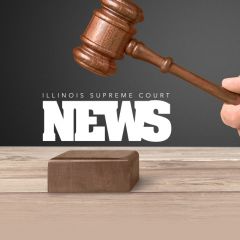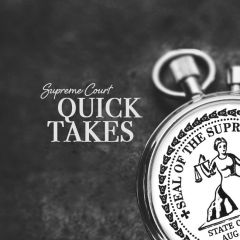Let’s Make a Deal (But Not Without the Client)
In his April Illinois Bar Journal ethics column, “Let’s Make a Deal (But Not Without the Client),” ISBA General Counsel Charles J. Northrup mentions reading the Illinois Supreme Court’s opinion in Midwest Sanitary Service, Inc. v. Sandberg.



